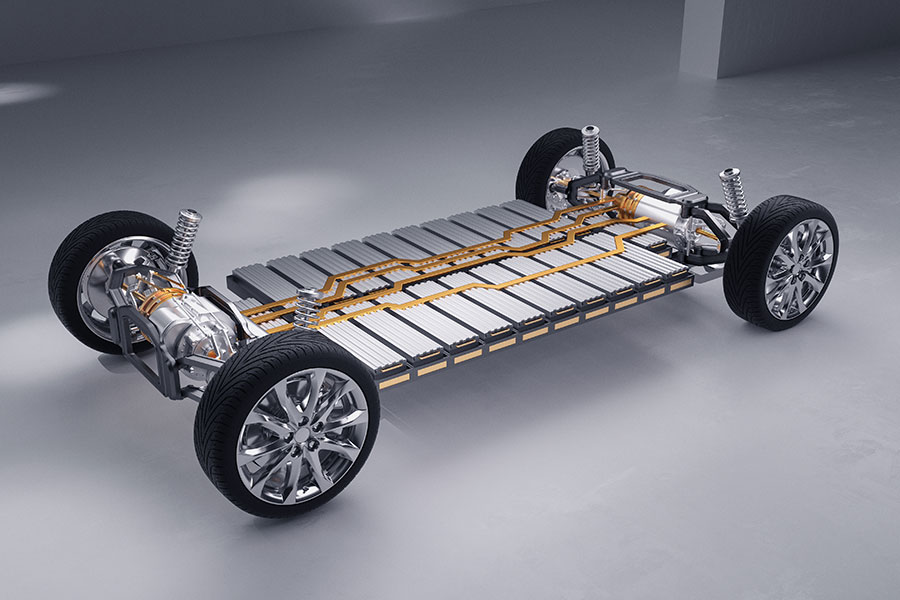The EU may become heavily dependent on China's lithium-ion/fuel cells
According to a document prepared for EU leaders, if strong measures are not taken, by 2030, the EU's dependence on China in terms of lithium-ion batteries and fuel cells may be the same as that on Russian energy before the Russia-Ukraine conflict.
This exposed document will serve as the basis for EU leaders to discuss European economic security at a meeting held in Granada, Spain on October 5th.
Due to concerns about China's growing influence, leaders will discuss the recommendations of the European Commission to reduce the risk of Europe's excessive dependence on China and the diverse needs of Africa and Latin America.
The document states that due to the intermittent nature of renewable energy sources such as solar or wind energy, Europe will need to find ways to store energy in order to achieve the goal of net zero carbon dioxide emissions by 2050.
This document, drafted by Spain, the rotating presidency of the European Union, states: "This will lead to a surge in our demand for lithium-ion batteries, fuel cells, and electrolytic cells, which is expected to increase by 10 to 30 times in the next few years
Although the EU holds a strong position in the intermediate and assembly stages of electrolytic cell manufacturing, with a global market share of over 50%, it heavily relies on China for fuel cells and lithium-ion batteries that are crucial for electric vehicles.
The report said: "If we do not take strong measures, by 2030, the dependence of European energy ecosystems on China may be different, but the severity is similar to that of Russia-Ukraine conflict."
According to the statistics of the European Commission, in 2021, the year before the Russia-Ukraine conflict, the EU imported more than 40% of natural gas, 27% of oil and 46% of coal from Russia.
Stopping the purchase of most energy from Russia has led to a shock in EU energy prices and a surge in consumer inflation, forcing the European Central Bank to significantly raise interest rates, which has suppressed economic growth.
The Spanish presidential document states that lithium-ion batteries and fuel cells are not the only vulnerable areas in the European Union.
The document states: "Similar situations may occur in the field of digital technology. Predictions indicate that the demand for digital devices such as sensors, drones, data servers, storage devices, and data transmission networks will sharply increase over the next decade
The report states: "The EU has a relatively strong position in the latter, but has shown obvious weaknesses in other fields
The report also states that by 2030, this dependence on foreign countries may seriously hinder the urgently needed productivity improvements in Europe's industrial and service industries, and may hinder the modernization of agricultural systems crucial for addressing climate change.
Due to concerns about China's growing influence, leaders will discuss the recommendations of the European Commission to reduce the risk of Europe's excessive dependence on China and the diverse needs of Africa and Latin America.
The document states that due to the intermittent nature of renewable energy sources such as solar or wind energy, Europe will need to find ways to store energy in order to achieve the goal of net zero carbon dioxide emissions by 2050.
This document, drafted by Spain, the rotating presidency of the European Union, states: "This will lead to a surge in our demand for lithium-ion batteries, fuel cells, and electrolytic cells, which is expected to increase by 10 to 30 times in the next few years
Although the EU holds a strong position in the intermediate and assembly stages of electrolytic cell manufacturing, with a global market share of over 50%, it heavily relies on China for fuel cells and lithium-ion batteries that are crucial for electric vehicles.
The report said: "If we do not take strong measures, by 2030, the dependence of European energy ecosystems on China may be different, but the severity is similar to that of Russia-Ukraine conflict."
According to the statistics of the European Commission, in 2021, the year before the Russia-Ukraine conflict, the EU imported more than 40% of natural gas, 27% of oil and 46% of coal from Russia.
Stopping the purchase of most energy from Russia has led to a shock in EU energy prices and a surge in consumer inflation, forcing the European Central Bank to significantly raise interest rates, which has suppressed economic growth.
The Spanish presidential document states that lithium-ion batteries and fuel cells are not the only vulnerable areas in the European Union.
The document states: "Similar situations may occur in the field of digital technology. Predictions indicate that the demand for digital devices such as sensors, drones, data servers, storage devices, and data transmission networks will sharply increase over the next decade
The report states: "The EU has a relatively strong position in the latter, but has shown obvious weaknesses in other fields
The report also states that by 2030, this dependence on foreign countries may seriously hinder the urgently needed productivity improvements in Europe's industrial and service industries, and may hinder the modernization of agricultural systems crucial for addressing climate change.